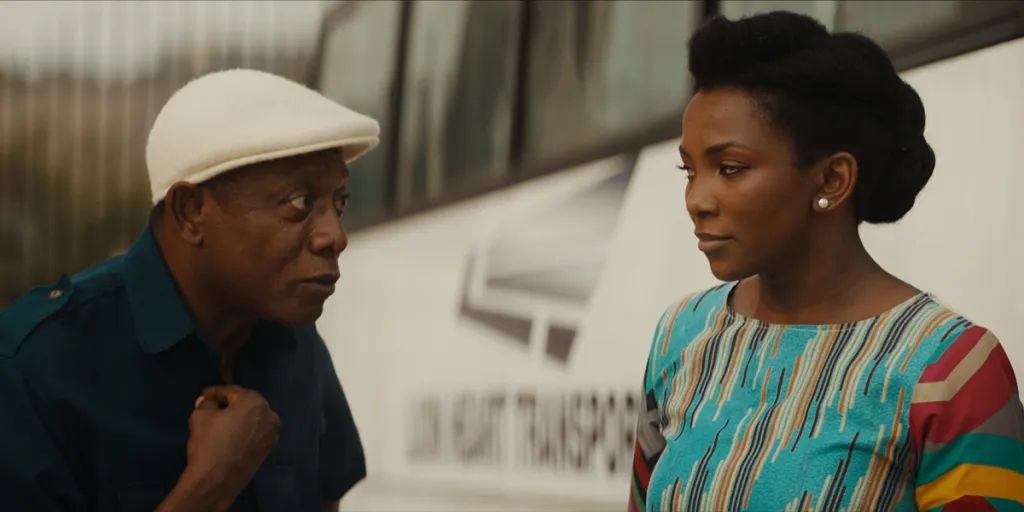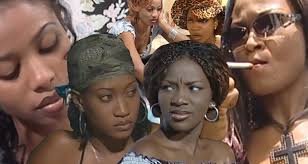The Evolution of Nollywood: An Ode to the Old and New
Nollywood, Nigeria's film industry, stands as a beacon of creativity and representation in African cinema, reflecting and showcasing the uniqueness of Nigerian culture and telling the Nigerian experience and story on the big and small screen. Like fine wine that matures with age, the industry has evolved, exhibiting shifts in narrative focus, technical quality, and global reach. While the glitz and glam of new Nollywood continues to dazzle audiences, there's a unique charm in old Nollywood that's worth reminiscing about (Old Nollywood carried a kind of unique charm that remains with its audience.).
The Charm of Old Nollywood
With often limited resources, filmmakers created memorable stories which were powered by great actors passionate about craft, that resonated deeply with audiences. Even with its limited resources, Old Nollywood had an unpolished beauty that made it uniquely endearing. Despite its challenges, the industry produced an impressive cadre of actors and actresses, whose raw talents and impassioned performances earned them an everlasting spot in our hearts. Kanayo o Kanyo, Ramsey Noah, Omotola Jalede-Ekeinde, Stella Damascus, Olu Jacobs, Pete Edochie, Patience Ozokwor, and Genevieve Nnaji, to name just a few, were the faces of a generation that witnessed the birth and boom of Nollywood.
There was an authenticity to old Nollywood. Films were steeped in local culture, and Old Nollywood was authentic. The films produced by the industry at the time were brimming with humor, drama, and life lessons. Production techniques, such as the dramatic zoom-ins and suspense-filled soundtracks, were pivotal to the industry's everlasting success and brilliance.
TV shows like Superstory, Everyday's People, After The Storm, One Love, and Family Circle, reproduced tales of everyday life, reflecting the joys, sorrows, and aspirations of the ordinary Nigerian. They weren't just shows; they were a mirror to society (These shows were a mirror to society). It was difficult to appreciate and be proud of the industry’s novelty at the time. The films and shows the industry produced were not as cool and complex as what Hollywood delivered. The poor production value and low style did not feed into my need to escape. But it had a lot of heart, and that was enough for it.
The New Nollywood Narrative
There's no denying that Nollywood in recent times, has made significant strides. It is hard not to be impressed with the industry’s new production standard. We see this in films like Jagun Jagun, Brotherhood, Gangs of Lagos and more. The films are now better refined , production values are higher. plots more ambitious, exploring diverse genres from sci-fi to crime thrillers. New Nollywood is pushing boundaries and earning well-deserved accolades on global platforms.
However, with this evolution, there is a sense that Nollywood is narrowing and restricting its narrative lens. A growing number of films and TV shows now focus on the urban elite, painting a glossy picture of life in posh locales like Ikoyi and Lekki. This shift, while reflecting a section of modern Nigerian society, risks alienating a broader audience seeking more varied and relatable content.
The advent of social media has also brought a surge of skit makers and influencers to the limelight. While this has its merits in terms of marketing and promotions, the essence of storytelling through better equipped talent sometimes gets lost in the quest for viral content, ultimately lowering the threshold of talent that carries the show in acting.
Old Nollywood, with its theatre-trained talents, delivered raw, emotive performances that till date, are hard to rival. There is also talent in new Nollywood, but there can be more. Filmmakers need to see the possibilities that can be had when they choose to blend the components of authentic storytelling of old Nollywood with the technical brilliance of the new.
Balancing the Scale
While it showcased a broader range and variety, old Nollywood was not without its flaws. Films from this era sometimes perpetuated problematic cultural norms, and storylines often revolved around clichéd themes. But that is the beauty of evolution. New Nollywood has an opportunity to take the best of both worlds: the authenticity and variety of old Nollywood and the technical prowess and global reach of the new.
In celebrating Nollywood's journey, we must appreciate its rich history while embracing its promising future. As audiences, it is our role to demand diverse and authentic stories, ensuring that Nollywood remains a true reflection of Nigeria's multifaceted culture and continues to enchant us for generations to come.





